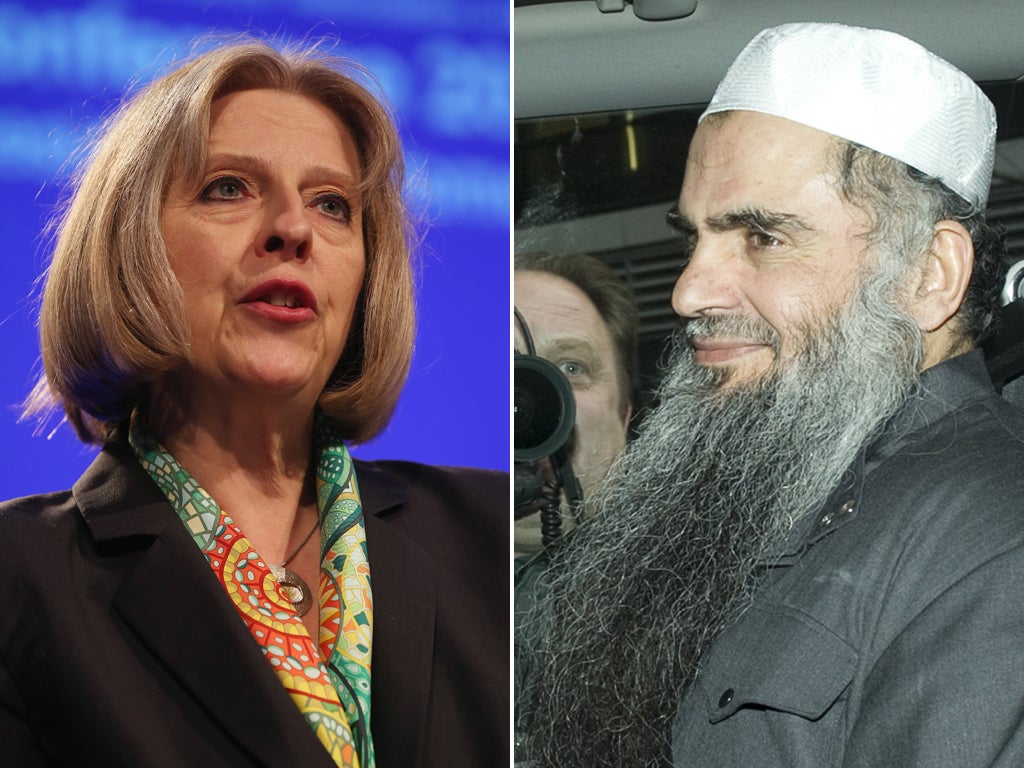This is not just about Abu Qatada, it's about a climate of contempt for human rights principles
Human rights are for the rest of us, as well as the best of us. Anything approaching a sliding scale of entitlement is frightening, says Amnesty's Campaigns Director

For two hours yesterday I almost believed that the United Kingdom was about to pull out of the European Convention on Human Rights. Experts at Amnesty’s UK and global headquarters started to prepare a response.
It came to nothing – and of course, legally that was inevitable. It appears that a Government press briefing ahead of the Home Secretary’s statement to the House of Commons sparked baseless speculation. But if I’m a schmuk for being taken in by the rumours, then I’m in good journalistic company. The fact that the rumours were given that degree of credibility speaks volumes about attitudes to the ECHR in Parliament, in large segments of the press and beyond.
At the centre of the furore was, predictably, Abu Qatada. The Government want him gone, the Courts keep getting in the way. Public opinion is largely on the side of the Government. Amnesty International is on the side of the Courts.
Periodically my employers send me out to defend Abu Qatada's human rights. It’s a task that I carry out, not just because it’s in my job description, but because it’s fundamental to my ability to defend the human rights of all people around the world. Human rights are for the rest of us as well as the best of us and anything that approaches a sliding scale of entitlement is frightening.
And this is the point. Basic principles are at stake. This is not just about Abu Qatada and I think it is worth considering just some of the “what ifs” that arose from yesterday’s rumour-fest.
• If the UK withdrew from the European Convention on Human Rights, we would be hanging out with Belarus – “Europe’s last dictatorship” and the only country on our continent that stands outside the Convention;
• The wheeze of withdrawing from the convention only to rejoin as soon as Abu Qatada was handed over to the Jordanians would have been noticed everywhere – and then potentially copied by governments less dainty than our own – to the detriment of their people.
• William Hague’s ability to talk about the rule of law and human rights observance in countries from Azerbaijan to Zimbabwe would have been in tatters.
In fact, Theresa May stood up for the rule of law, although if you read some of the papers today you’d think she was on the edge of the dismal and dangerous step of withdrawal. I’m not sure that she is and I don’t think the political arithmetic is in her favour anyway. It all sounds like dodgy politics.
If I’m right, this is to the credit of Theresa May and this country. Global power is shifting but the UK remains very influential. Its actions continue to matter, which is why Amnesty’s response would have been global, as well as local.
Human Rights are universal, they are not handed down by any state. But you could argue that this country was (in rhetoric, if not practice) an “early adopter”. This is manifest in habeas corpus, Magna Carta and the agreement of the European Convention under Winston Churchill’s government. Those who want to chuck away the ECHR over the tough case of Abu Qatada should pause before they throw away this legacy, diminish the UK’s future influence and undermine the human rights protections of more than seven hundred million people.
What we are talking about at base, is suspending our duty to play by the rules. Rules which we drafted, in the main. Rules which we insist others sign up to. The proposal is that we send someone to an unfair trial, where evidence obtained through torture might be used – both a denunciation of the use of torture and an insistence on the right to a fair trial are two of the most basic principles of our collective society.
It would be a dark day indeed if we abandoned those principles because of one person. Human rights cannot be served ‘pick and mix’ style - you’re either in or out.
Join our commenting forum
Join thought-provoking conversations, follow other Independent readers and see their replies
Comments
Bookmark popover
Removed from bookmarks